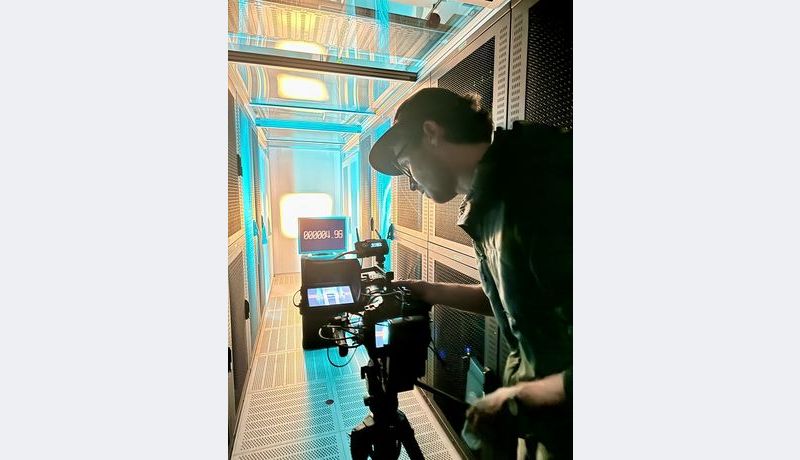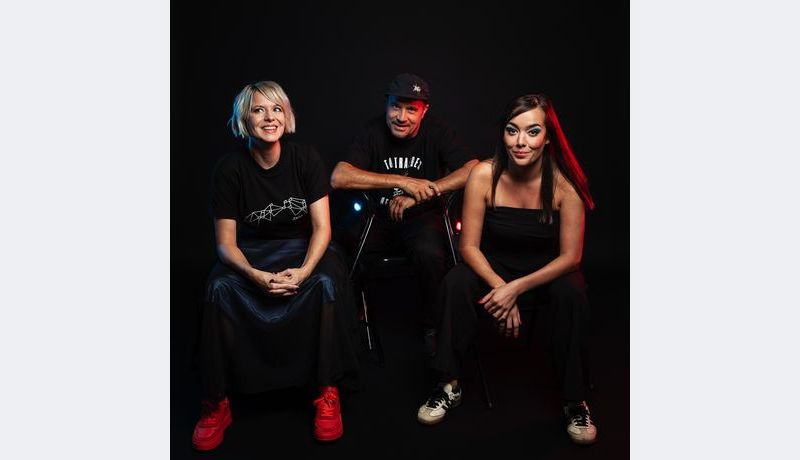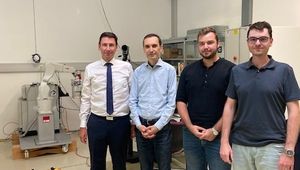Scientists predict that AI systems operating on a global scale will quickly require up to 134 terawatt hours (TWh) of electricity per year.

In essence, the amount of energy required is comparable to what some entire countries need! In partnership with rapper Yasmo and Linz hip-hop veteran Flip (aka Texta) - and in an effort to raise awareness about climate change and ChatGPT & Co.’s carbon footprint - the LIT Robopsychology Lab at the Johannes Kepler University Linz has released a song titled “Hi, AI (134 TWh)”.
Artificial intelligence (AI) is already an integral part of our everyday lives and there are no signs it will slow down any time soon. While artificial intelligence is driving advancements in pharmaceutical developments and medical treatments forward, a growing use of AI inevitably involves a higher carbon footprint.
An Insatiable Appetite for Electricity and Water
The University of California estimates a long chat with ChatGPT consumes approximately a half liter of water (to cool the AI servers). A widely cited prediction by De Vries (2023) suggests that AI data centers worldwide will soon require up to 134 terawatt hours of electricity per year, comparable to, say, Argentina or Sweden’s total energy consumption. Many users are unaware some of the issues involved.
Prof. Dr. Martina Mara (head of the JKU LIT Robo-Psychology Lab) and her team hope to draw attention to AI’s carbon footprint in a musical way: “Even tech-savvy people who use AI every day are often unaware of the resource and energy consumption involved. Is it any wonder? When we open ChatGPT in a browser, for example, we don't actually take the huge data centers that operate these systems (often located in distant regions where the temperatures are cold and/or fossil fuel electricity is cheap) into consideration.”
Leading Rap Musicians Focus on AI
The LIT Robopsychology Lab created the idea together with rapper and slam poet, Yasmo. The JKU conducted content research while Yasmo and Flip drafted the lyrics and composed the beat. Prof. Mara added: “We are thrilled to have been able to bring Yasmo and Linz hip-hop legend Flip in to work with us; they are true names in the business!”
Yasmo was the first female hip-hop artist to be nominated for an Amadeus Austrian Music Award in 2018. Linz hip-hop veteran Flip, part of the group Texta, composed the beat and produced the song in the studio. Directed by Felix Hubr, Yasmo and Flip also filmed the music video for “Hi, AI (134 TWh)” at the JKU. The video made possible by funding provided by the state of Upper Austria as part of the 2024 Ars Electronica Festival.
Weighing the Pros and Cons
Starting today, you can listen to the song on Spotify, or watch the music video on YouTube. The entertaining song educates listeners about AI's insatiable appetite for electricity and water, but also points out AI’s benefits, such as serving as an analysis and forecasting tool in a positive sense to support of climate protection (such as efficiently monitoring transportation routes, energy systems, and buildings).
The JKU researcher suggests that listeners themselves pay attention to their own energy consumption, and apply AI in a targeted way in areas where it can truly add value.
The JKU at the Forefront of Cutting-Edge Research
The JKU focuses intensely on AI as, for example, part of the Cluster of Excellence “Bilateral Artificial Intelligence” under the direction of Sepp Hochreiter and Martina Seidl, and at the JKU LIT Robo-Psychology Lab, where Prof. Mara and her team focus on studying human-AI interaction. The JKU was also Europe’s first university to launch academic degree programs in AI. One key aspect when dealing with AI is assessing its environmental impact.
JKU Rector Stefan Koch explains: “AI is a true revolution and it’s up to us to use it to benefit people, the environment, and the community. Here at the JKU we consider this as one of our missions, along with encouraging dialogue and objectively engaging in important debates on the use of this kind of technology. The project successfully brings art and science together and I find it very exciting! I hope the song Prof. Martina Mara and her team created will spark broad debates on the subject!”
Incorporating the Research Project as Part of “Songs about AI”
The rap song “Hi, AI (134TWh)” is one of several songs that are a part of the LIT Robo-Psychology Lab's “Songs about AI” project designed to raise awareness about AI among the general public. The first easy-to-understand AI educational song, "A Liadl, ans üwa KI, opens an external URL in a new window", was released in 2023 in collaboration with singer-songwriter Blonder Engel.
Martina Mara hopes the new song will appeal to as many listeners as possible and adds: “One doesn’t need AI to generate songs because if you listen to ‘Hi, AI (134 TWh)’, you’ll notice humans are also very good at composing songs!”
The song, music video, and detailed info about “Hi, AI (134 TWh)” is available at:
https://www.jku.at/lit-robopsychology-lab/hi-ai/
Listen to “Hi, AI (134 TWh)” today on Spotify and YouTube!
 Go to JKU Homepage
Go to JKU Homepage














